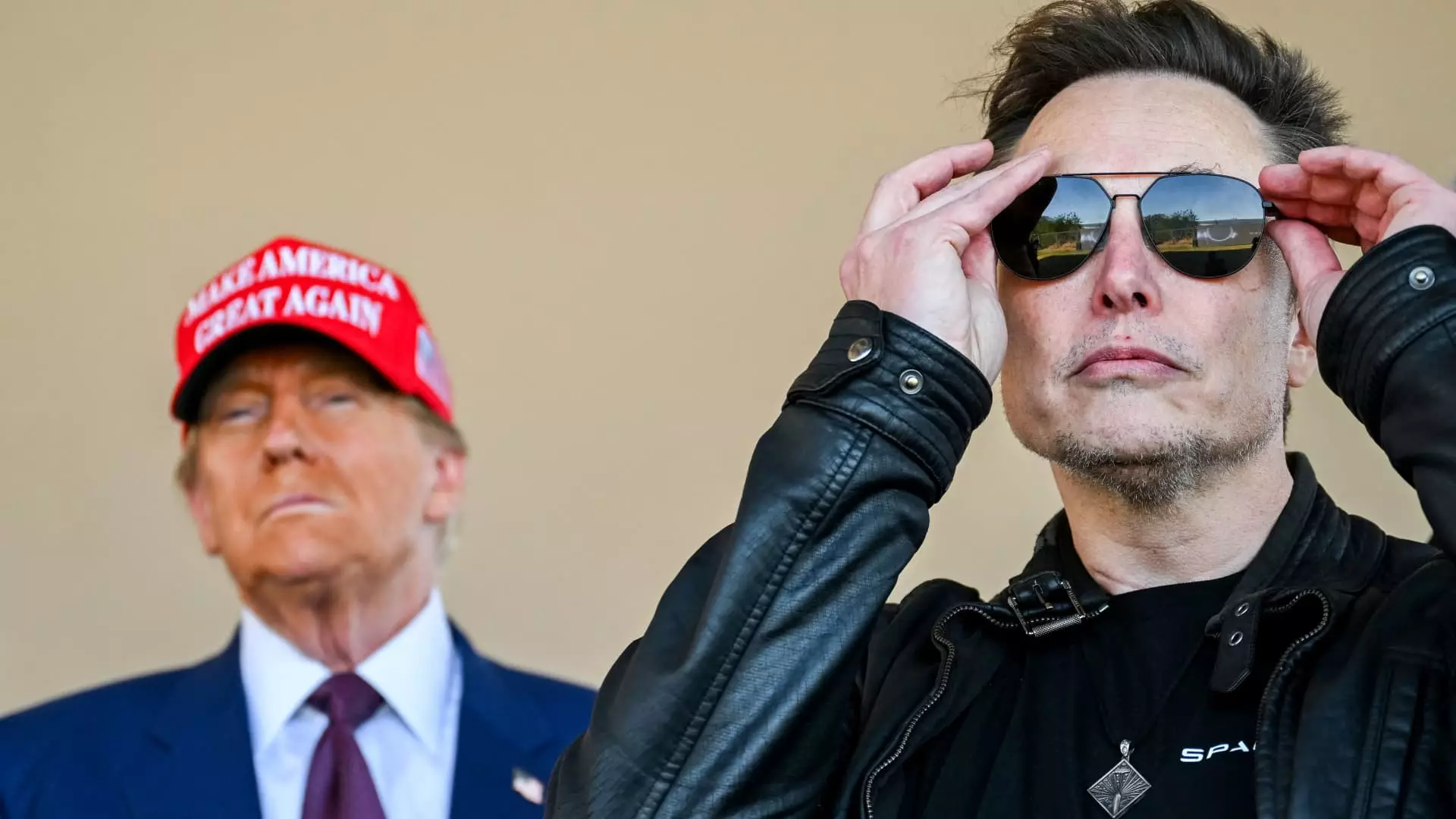In a striking turn of events, Tesla’s stock showcased an unprecedented ascent on Wednesday, achieving an all-time high that eclipsed its last notable peak in 2021. This milestone reached an intraday zenith of $415, nudging past its previous record by a mere 50 cents. The excitement surrounding the stock rally wasn’t inadvertent; it was fueled by a post-election exuberance that has swept through Wall Street, drawing renewed attention to the electric vehicle trailblazer led by the enigmatic Elon Musk. With a staggering year-to-date growth of approximately 66%, most of Tesla’s gains can be traced back to the aftermath of Donald Trump’s election victory just over a month ago.
The fervor surrounding Tesla seemed palpable, as the stock soared by 38% in November, marking the most robust monthly performance since January 2023 and placing it in the ranks of the tenth best monthly rallies in its history. The rising optimism isn’t merely rooted in market sentiment; it is a product of strategic moves made by Musk and the political environment, suggesting that behind-the-scenes maneuvers in the political arena have tangible impacts on corporate financial health.
Elon Musk’s significant financial commitment to pro-Trump campaign efforts—amounting to $277 million as per Federal Election Commission filings—has raised eyebrows within and beyond the investment community. His active involvement in the Trump campaign illustrates a commitment to intertwining personal and corporate interests that could shape Tesla’s future in myriad ways. This endeavor has allowed Musk to forge valuable connections which could potentially benefit Tesla through advantageous regulatory changes. Given Musk’s ambition to streamline federal approval for autonomous vehicles, the implications stretch far beyond the political. This kind of access could yield a transformative impact on the electric vehicle sector, particularly if regulatory barriers at the state level can be circumvented.
As the world’s richest individual, with a net worth surging beyond $360 billion, Musk is not just a passive observer in the political landscape; he is positioning himself to influence it directly. His intended role in the prospective Trump administration’s “Department of Government Efficiency” could empower him to lobby for the deconstruction of various regulations that may pose challenges for Tesla and other burgeoning tech companies. Political analysts note that Musk’s advocacy for Trump has the potential to increase Tesla’s market credibility significantly, expanding its pool of enthusiasts and solidifying its standing as a leader in the electric vehicle domain.
In tandem with Tesla’s soaring stock prices, investment firms have been opportunistic in recalibrating their projections for the company. Goldman Sachs recently bolstered its price target, a sentiment echoed by other reputable financial institutions like Morgan Stanley and Bank of America. Analysts suggest that the market is beginning to verily embrace a forward-looking perspective on Tesla, particularly through the lens of artificial intelligence and innovative advancements on the horizon.
Craig Irwin from Roth MKM labeled the renewed interest as a direct response to the “Trump bump,” a phrase that succinctly captures the intersection of politics and corporate performance. Irwin’s price target revision—from $85 to $380—underscores an evolving landscape, where investor sentiment is increasingly tethered to geopolitical developments. The enthusiasm reflects a growing recognition of Tesla’s robust potential in market sectors that are yet underexplored, particularly in the realms of AI and autonomous functionality.
Despite this bullish sentiment, it’s essential to juxtapose recent surges against Tesla’s troubled start to 2024. The corporation endured a staggering 29% decline in stock value in the first quarter, marking its worst quarterly performance since late 2022. Investor apprehensions primarily revolved around declining revenues spurred by intensified competition, particularly from China. However, Tesla charted an unexpected course, reporting profits that outperformed expectations and defying analysts’ early predictions.
Musk’s optimistic forecast for 20% to 30% growth in vehicle sales next year, anchored by the introduction of more affordable models and advancements in autonomy, signifies a turning point of sorts, exemplifying resilience even in the face of adversity. The collaborative fusion of political backing and strategic financial maneuvers looks to be steering Tesla toward a promising future, one that could continue to disrupt the automotive market and redefine industry standards.
Tesla’s recent performance is not only a reflection of its product offerings but also a testament to how intertwined politics and corporate strategy can yield significant shifts in market trajectories. As we look ahead, the stakes are higher, and the potential for both volatility and growth has never been more pronounced.

